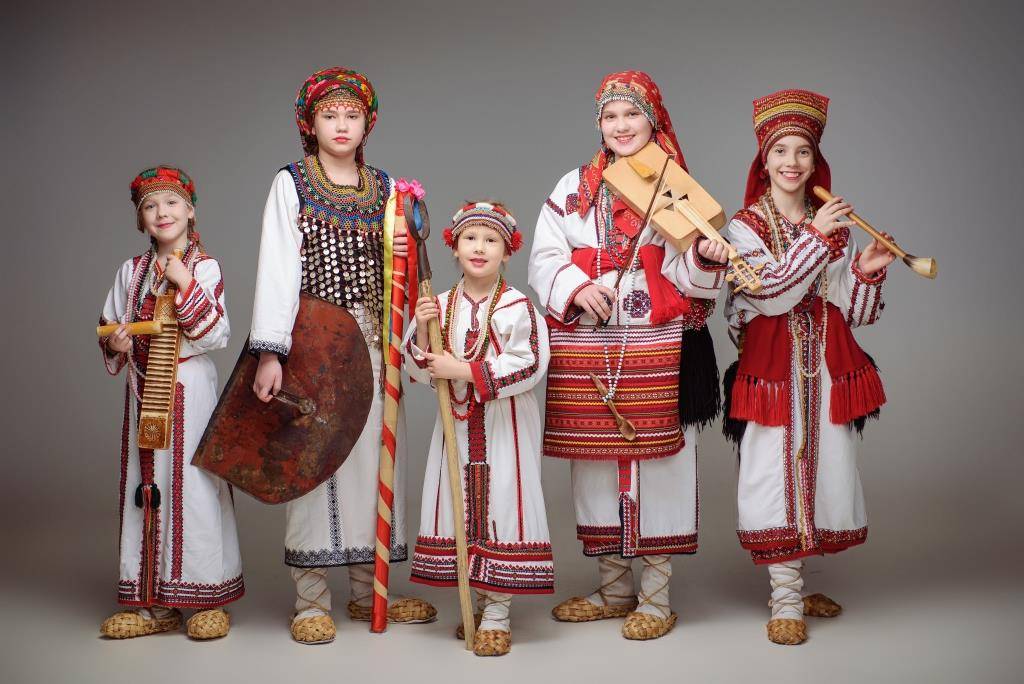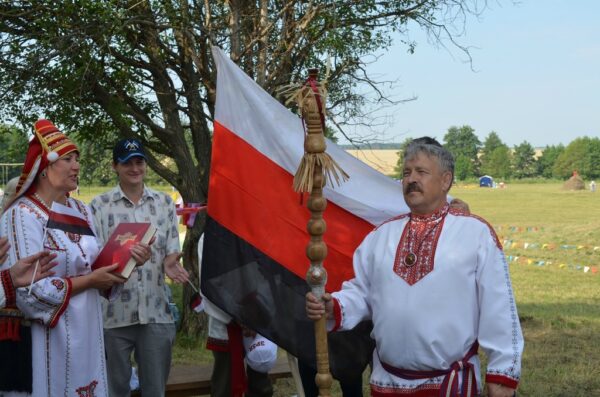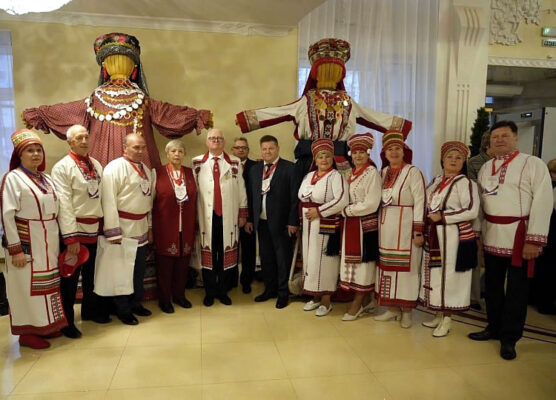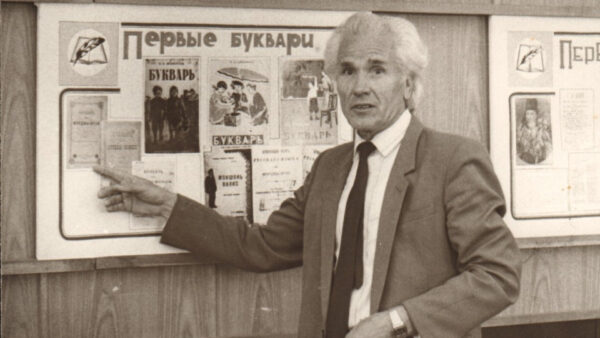30 years of Erzya Language Day
On 16 April, the Erzya Language Day is celebrated, as decided by the Foundation for Saving the Erzya Language, which was set up in 1993 to support the Erzya national movement. The Foundation itself was named after the linguist Anatoly Ryabov (1894-1838), whose birthday, 16 April, became the date for the celebration of the day in 1994.

Thus, today marks 30 years since the first celebration of this national holiday and 130 years since the birth of Anatoly Ryabov. Sadly, there is no longer an official Erzya Language Day in the Russian Federation, nor, in fact, is there a foundation that created the day. The changes are telling and show how things are in Mordovia. First of all, the name of the day was changed in 2010, and now it is known as the All-Russian Mordvin Language Day.
The problem is that in the Russian Federation, there is the Republic of Mordovia, but there is no Mordvin language. Instead, there are the Erzya and Moksha languages. In the changed national-political situation, therefore, there was no way to save the Erzya language. The question would arise from whom the Erzya language is being saved, since the Russian Federation is a paradise for all languages and peoples. Thus, it cannot be that the language needs to be saved. So in 2019, the fund was renamed the Foundation for the Preservation and Development of the Erzya Cultural Heritage.
Celebration of Erzya Language Day
With the change of the day’s name, the purpose of the celebration of the day also changed. Originally the day was about the promotion and recognition of the Erzya language, literature and culture. The Day was also the celebration of the anniversary of Anatoly Ryabov. The Day now aims to strengthen the unity of the Russian people, harmonising ethnic relations on the basis of respect for the unique culture, language and traditions of the Mordvin people.
To mark the day, recitals are held in schools in Erzya and Moksha, and national literature is presented in libraries. A solemn concert will be held on 18 April dedicated to the Republic of Mordovia in Moscow. The leadership of the Republic of Mordovia will participate in the concert, headed by the Head of State Artyom Zdunov. Also, high-ranking representatives of the Russian central authorities are expected. Folklore ensembles will perform songs in Erzya and Moksha and national handicrafts will be displayed. In addition, an exhibition of literature in Erzya and Moksha will be set up.
Erzya language
The Erzya alphabet was created on the basis of the Russian alphabet in 1925 and the Moksha alphabet in 1933. As late as the end of the last century, the Erzya and Moksha used unique characters to convey various messages. The Mordvin languages, Erzya and Moksha, are quite similar, but there are differences at all levels: in pronunciation, grammar, vocabulary. The people who speak these languages are called Mordvins, according to their country of origin. From time to time, attempts have been made to create a common written language of Mordvin, but linguists believe that this would lead to the extinction of both languages.
Mordvin languages
Niina Aasmäe, an Erzya linguist living in Tartu, has written an article ‘The exonym Mordvin is not found in the Erzya and Moksha languages’ in the Sirp newspaper. In it, she says that ‘Mordvin languages belong to the Finno-Ugric group of Uralic languages. Mordvin (especially Erzya) and West Finnic languages have much in common, and similarities can be seen in vocabulary as well as in declension and conjugation. Let me give you some examples from Erzya and Estonian: kudoso uľńeś med ~ kodus oli mett (there was honey at home), t´ejan ť ev ~ teen tööd (I work), koso kasiť tumoťńe? ~ kus kasvavad tammed? (where do oak trees grow?). Those who have a knowledge of Estonian or Finnish will quickly acquire the knowledge of Erzya and start to see the common structure of the Finno-Ugric languages.
In the Mordvin languages, there are phenomena that have survived only in some related languages (such as object conjugation). Erzya and Moksha are less different than Estonian and Finnish. Nonetheless, Erzya and Moksha cannot communicate without knowing the other one’s language. For example, the word for one is vejke in Erzya and fkä in Moksha. There are differences not only in pronunciation but also in morphology and vocabulary. Let’s compare: ‘good’ in Erzya is paro (the Estonian word parem has the same root), in Moksha cebäŕ (a loan from Tatar). Erzya-Moksha bilingualism has had a rather modest place in communication so far.’
Anatoly Ryabov
The future linguist and professor, founder of the Erzya written language, Anatoly Ryabov was born on 16 April 1894. He was born in the village of Lambashke in the Itšalki district of Mordovia. After graduating from the village school, he studied at a church school and received his university education at the Nezhin Lyceum near Kiev. There he is also said to have studied Estonian. He helped to promote cooperation between Mordvin and other scientists. Ryabov’s life was cut short in 1938: he was executed on charges of intelligence work for foreign countries, as were several prominent members of his family and relatives.
Modern times
According to the 2021 census in the Russian Federation, 484,450 Mordvins were counted. Of those, 50,068 identified themselves as ethnic Erzya and 11,801 as ethnic Moksha. 40,045 people considered themselves to be speakers of the Erzya language. Back in 2010, 744,236 Mordvins were counted, which is 260,000 fewer in 11 years.
Since the beginning of April, the Salme Cultural Centre has hosted a photo exhibition of sculptures by the Erzya sculptor Stepan Ersa. This is a celebration of the Erzya Language Day in cooperation with the Estonian-Mordvin Society.
- Eksonüümi mordva ei leia ersa ega mokša keelest (17.04.2015 Sirp, in Estonian)
- Завтра эрзяне отмечают день своего языка (15.04.2024 MariUver, in Russian)
- Республика отмечает Всероссийский день мордовских языков (16.04.2024 Mordovia Tv, in Russian)
- Всероссийский день мордовских языков пройдёт на международной выставке-форуме «Россия» 18 апреля (12.04.2024 mktrm.ru, in Russian)



